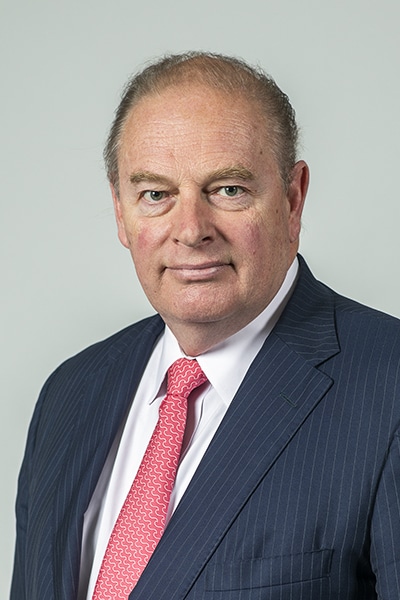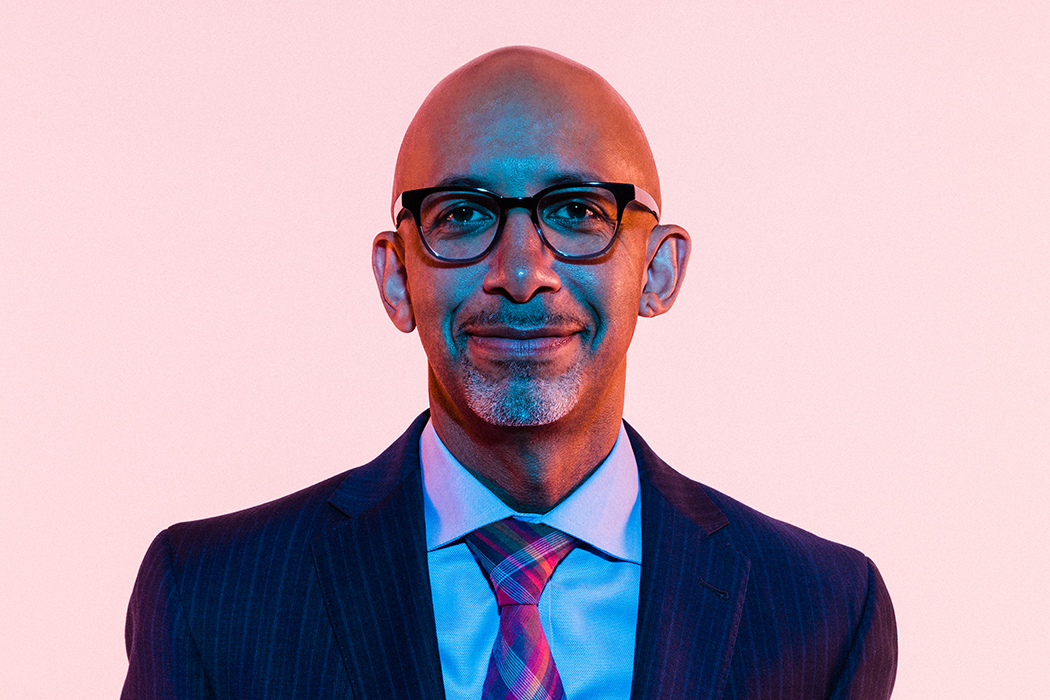As COVID-19 began to make its tremendous impact on the US in March, Prisma Health needed the expertise of someone who had experience guiding a healthcare facility through a crisis. And they found the right person: Michael Burke.
Burke’s career dates back to 1979. He started at small community hospitals and worked his way up to major hospitals at Duke, Tufts, and New York University before retiring early.

“I got bored,” Burke says, laughing, “and told someone that I would be willing to consider doing interim work to help turn places around. The opportunity came for me to come [to Prisma] right at the peak of the pandemic. They wanted somebody who had been through a disaster before, and since I helped managed finances at NYU after Sandy when they were closed for three months, I had an idea of what we needed to do.”
Burke’s work at NYU post–Hurricane Sandy in October 2012 included setting up a disaster accounting group and implementing procedures to recover as much money as possible. He has led similar initiatives at Prisma Health.
“What you have to do in these types of situations is get everybody to start realizing that their focus has to be on getting through and over the hump of the disaster, so to speak,” Burke explains. “You have to have everybody focus, all-hands-on-deck, on dealing with the disaster. At the same time, you basically freeze anything that you were doing from a spending standpoint, if possible, so that you can save that money—you’re going to need that to keep the places you have going operational. And you have to start operating differently so that you can deal with the disaster and still have cash.”
As the largest not-for-profit health organization in South Carolina, Prisma Health serves more than 1.2 million patients each year. Among many initiatives it took during the pandemic was establishing a facility exclusively for COVID-19 patients.
“We did that in about a week,” Burke remembers. “Anytime we found patients in regions where there was a spread, we would set up free testing sites in that region, do drive-through testing, and find people who tested positive and get them on their treatment to try to slow down the spread.”
Prisma Health also assisted nursing homes by providing them with doctors, testing residents, and supplying staff with personal protective equipment, or PPE.
“We started acting selflessly and started dealing with the health of the state, not necessarily worrying about whether we were going to meet our volumes,” Burke notes. “The government was good enough to give us a decent advance, and we kept applying for all the COVID relief funds as they came in so we’d have sufficient funding to be able to do things like that.”
Burke also notes that medical professionals are dealing with a different challenge as a result of COVID-19—people are not seeking treatment for chronic conditions or symptoms out of fear of contracting the virus in the hospital, thus delaying treatments for cancer or stroke that should have been received sooner.
“Mortality is up because people are coming in with full-blown heart attacks and strokes when they could have gone in when they had other symptoms, like chest pains, and been treated earlier,” Burke says.
“We have to take a different look at how we treat people as a society and our moral responsibility to the residents of our society. Everybody should use this as a wake-up call as to what the country really needs as opposed to what we’re doing.”
Of course, these fears could be quelled by properly educating the public about their risk of contraction as well as by providing them with the resources they need to stay healthy, starting with healthcare coverage. Burke strongly believes everyone should have access to basic healthcare and that there should be a public option.
“So that when you have these pandemic responses, people who are residing in their neighborhood that have symptoms of this virus can get tested and treated and stabilized,” he suggests. “And it doesn’t matter if they have private insurance, Medicare, Medicaid, or nothing. Everyone has to get the same treatment.”
After being offered the full-time role, Burke decided to stay on as Prisma Health’s chief financial officer in July 2020. One of the skills he has developed is the ability to unite people during a difficult time to continue the organization’s important work. And at Prisma, that means putting the interests of patients first. It fits with the mission of Prisma to inspire health, serve with compassion, and be the difference.
“The team concept is really important in this,” he says. “Everybody has to work together for the goals for the team. The old adage ‘There’s no I in team’ is really true. These old adages are still around because they really apply. You have to do what’s best for everyone else and not what’s best for your own self-interest.”
In fact, the challenge to think differently and do what’s best for the community is one reason he was motivated to come out of retirement.
“I like doing this,” he says. “We’re trying to become a health company that protects the public health needs of the people. It’s not about making tons of money for a set of a few fortunate people, like those on Wall Street; it’s for the greater good of the state. I find that invigorating and important.”
It’s Burke’s hope that the pandemic will raise awareness of the need for a change in our country’s healthcare system.
“We have to take a different look at how we treat people as a society and our moral responsibility to the residents of our society,” he says. “Everybody should use this as a wake-up call as to what the country really needs as opposed to what we’re doing.”
KPMG helps organizations across the healthcare ecosystem work in new ways to transform and innovate. We offer market-leading portfolio tools and services to help clients comply with regulatory change; improve healthcare outcomes through data analytics; adapt to the consumerism of healthcare; transact to gain sustainable competitive advantage; and optimize technology.
Versalus is a data-driven services company that helps hospitals improve performance in the clinical revenue cycle, where clinical decisions impact financial performance and compliance. We use data analytics to identify areas of opportunities and risk, work with hospital leaders and teams to translate data into actionable plans, and continuously monitor results to realize revenue opportunities.


